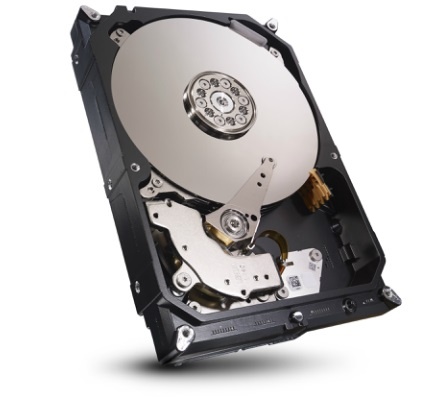Seagate Releases NAS HDD Drives For Storage Systems
Seagate today took the wraps off its new Seagate NAS HDD – a cutting-edge drive custom-built for always-on, one- to five-bay network attached storage (NAS) systems. Engineered with performance and reliability in mind, the new drives are available in 2TB, 3TB and 4TB capacities. The 4TB drive (part number ST4000VN000) is now the industry’s highest capacity NAS hard disk drive (HDD) solution available and launches with support from nine NAS system partners. The Seagate NAS HDD series is already available on Amazon for $211.16 shipped for 4TB, $162.37 shipped for 3TB and $126.29 shipped for the 2TB drive. The WD Red 3TB NAS hard drive that has been out since July 2012 currently retails for $150.89 shipped, so Seagate is slightly more expensive. The Seagate NAS HDD series drives all use the SATA III 6Gbps interface and have 64MB of multisegmented cache. The max systained data rate is 180MB/s read/write on the 3TB and 4TB drivers and 159MB/s on the smaller 2TB drive.

Featuring up to 4TB of storage the drive now enables NAS systems, such as those utilized in homes and small to midsize businesses (SMB), to provide up to 20TB of data in a five-bay NAS array. And with over 30 percent capacity improvement over competitive offerings, the NAS HDD 4TB drive delivers the highest capacity available on the market. Built to provide up to 10 percent performance advantage, over the competition for 24×7 NAS applications, the NAS HDD is engineered for performance in always on applications and can support multiple HD video streams and user profiles.
Today about 50 percent of NAS arrays are sold diskless meaning that customers are challenged with identifying and installing the right storage for their system. By developing a drive like NAS HDD, weve taken the guesswork out of it and made it easy for customers to identify the right drive for their system, said Scott Horn, Seagate vice president of marketing. By collaborating closely with a variety of partners who specialize in NAS systems, were making what was a confusing effort into a plug-and-play one.

Comments are closed.